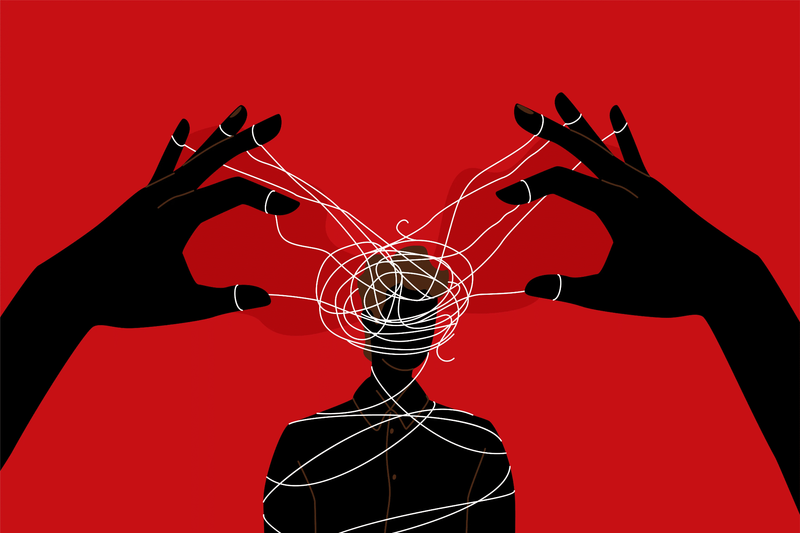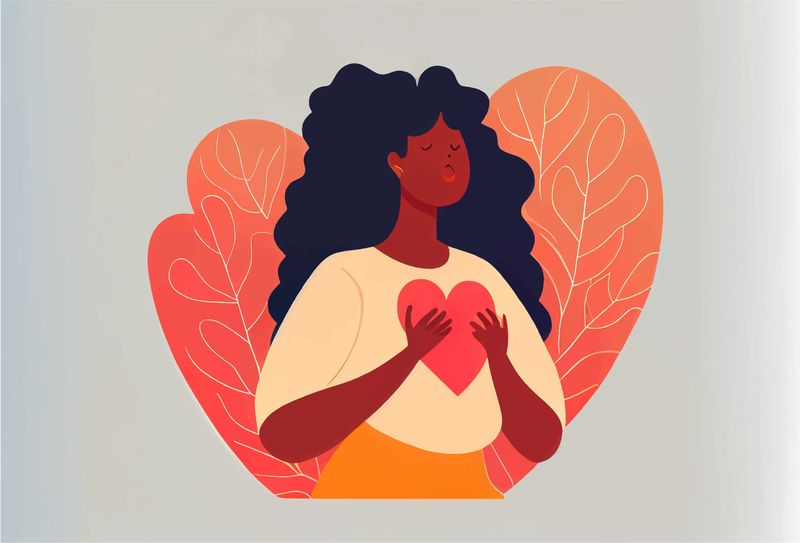18 Ways Narcissistic Love Rewires Your Brain And How to Reset It
If you’ve ever loved a narcissist, you already know: it doesn’t start with cruelty. It starts with magic. Obsession. A dizzying high. But over time, that love becomes a mind game—where you question everything, including your own sanity.
Narcissistic love doesn’t just hurt. It reprograms you. Your brain literally rewires itself to survive the chaos. To anticipate danger. To doubt yourself. But here’s the truth no one tells you: you can unlearn it. You can reset.
Let’s break down the 18 ways narcissistic love scrambles your brain chemistry and sense of self—and what you can do to heal it.
1. It Hooks You With Intense Dopamine Highs (Then Starves You)

Ever felt like you were starring in your own personal soap opera? Narcissists love to sweep you off your feet, showering you with compliments, grand gestures, and nonstop attention. At first, it feels like pure magic—your brain lights up with happy chemicals, and you’re hooked on the high.
Then, just as quickly, it’s gone. The affection dries up, leaving you desperate and confused, chasing after every little scrap of validation. You start craving the drama, not realizing that your brain has become addicted to the emotional rollercoaster.
Resetting means stepping off the ride. Start by noticing how you keep seeking those wild highs, and practice finding joy in the calm. Emotional chaos isn’t love—it’s a chemical trap. Learning to appreciate quiet moments is how you break free and let your brain heal from the inside out.
2. It Makes You Hyper-Aware of Their Moods (And Oblivious to Your Own)

You know that feeling when you walk on eggshells, always checking for the tiniest shift in their mood? That hyper-vigilance becomes your superpower—and your curse. Before long, you’re a world-class mind reader, but only for their feelings.
Somehow, your own emotions end up in the lost-and-found, gathering dust. You don’t even remember what happiness, anger, or sadness feels like when it’s yours. You’re too busy managing their storms.
The way back starts with a question: What am I feeling right now? It sounds simple, but it’s revolutionary. Tuning into your own heart takes practice, but it’s worth every awkward, unfamiliar moment. You deserve to know your own mind again.
3. It Teaches You That Love Equals Walking on Eggshells

Algures pelo caminho, anxiety became your love language. You learn to anticipate every outburst, every unpredictable reaction, and call it devotion. The eggshells become your comfort zone, and “safety” starts to mean silence and self-sacrifice.
You perform emotional acrobatics, hoping to avoid setting them off. Every smile, word, or gesture is carefully measured. It’s exhausting trying to keep peace that never lasts.
The path to healing? Safe relationships, plain and simple. Spend time with people who never make you flinch, whose love is steady, not spiky. Your nervous system can learn—as much as it was trained for chaos, it can be retrained for calm. Consistency is the new thrill.
4. It Conditions You to Expect Emotional Whiplash

Remember those days when you never knew if you’d be greeted with love or cold distance? Narcissistic love is like living in a house where the weather changes every hour—you’re always bracing for the next storm.
Consistency starts to feel foreign. When things are stable, you almost itch for the drama, convinced that something bad is about to happen. Your brain forgets how to relax.
Healing means letting “boring” feel good again. Predictability isn’t dull—it’s a gentle hug to your nervous system. Let yourself soak in steady affection; it’s the best detox from all those emotional plot twists that left you weary.
5. It Makes You Feel Like You’re the Problem

Ever find yourself apologizing for things that weren’t actually your fault? With a narcissist, you end up starring in your own blame game. Gaslighting is their specialty—they twist facts, rewrite history, and leave you questioning your own memories.
Soon, you’re convinced you’re always the problem, even when your gut says otherwise. It’s exhausting carrying guilt that doesn’t even belong to you.
To fight this, keep a reality log. Write down what really happened, not their version. When the gaslighting kicks in, your own words will remind you: you’re not crazy. Facts are your anchor when the truth gets slippery.
6. It Destroys Your Trust in Your Own Intuition

You know that little voice inside that used to shout, ‘Girl, run!’ The longer you’re with a narcissist, the quieter it gets. Every time you trust your instincts, they shut it down—calling you “too sensitive” or “crazy.”
Eventually, you stop listening altogether. You hand over the steering wheel of your own life, feeling lost on roads you once knew by heart.
Healing is all about turning the volume back up. Start with small hunches—say no when you mean it, yes when you want to, and walk away when things feel off. Your intuition is still there; it’s just waiting for you to listen again.
7. It Normalizes Emotional Deprivation

Somehow, you start to believe that love should feel lonely. You accept scraps of attention as if they’re gourmet meals, and you convince yourself that needing more is weakness.
Affection becomes something to earn, not something you deserve. You shrink your needs until they nearly disappear, just to keep the peace.
Healing means normalizing emotional nourishment—real, mutual care, not bargain-basement affection. Seek out relationships where your feelings are valued and giving is a two-way street. Remember: needing love isn’t a flaw. It’s your birthright, and it’s never too late to expect better.
8. It Wires You to Fear Peace

It’s wild, but calm starts to feel like a setup. If things are quiet, your body braces for the explosion that always seemed to follow. The more peaceful it gets, the less you trust it.
You become restless in stillness, as if your brain thinks chaos is home. Instead of relaxing, you’re tense—waiting for the other shoe to drop.
To reset, practice sitting with peace—even a few minutes at a time. Let your body learn that calm isn’t a trick, it’s your new normal. Safety isn’t suspicious; it’s exactly what you deserve after all the storms.
9. It Confuses Chaos With Chemistry

You know that breathless, butterflies-in-the-stomach feeling? In a narcissistic relationship, it’s less about love and more about survival instinct. The drama becomes the thrill, and emotional instability feels like fireworks.
You start to think that the more you suffer, the deeper you must be in love. That rush isn’t chemistry—it’s chaos dressed up as passion.
Resetting means redefining what chemistry feels like. Real intimacy is clarity, softness, and support—not a constant explosion of drama. The heartbeat you’re searching for? It’s steady, gentle, and shows up every day, not just when it’s convenient for them.
10. It Shrinks Your Sense of Identity

Remember when you knew exactly who you were—your favorite songs, your dreams, your weird little quirks? After a narcissist, all of that blurs. Their needs, opinions, and moods swallow up your own, and your identity gets pushed to the sidelines.
You start living for their approval, forgetting your own likes and dislikes. Who even are you without their influence?
Healing is about taking yourself back, piece by piece. Dust off your old playlists, wear what you love, and dive into hobbies that make you feel alive. Reclaiming your identity is messy, but it’s the best kind of homecoming.
11. It Hooks You on “Maybe”

There’s nothing stickier than the hope that someday, maybe, they’ll finally change. When you’re in it, “maybe” becomes your anthem—every apology and promise is a ticket to hold on a little longer.
But “maybe” keeps you stuck, waiting for a future that never actually arrives. You trade your present peace for the tiniest sliver of hope.
The first step to freedom? Swap “maybe” for “now.” Ask yourself if the relationship is healthy in this moment—not in a fantasy future. If the answer is no, it’s time to stop waiting and start choosing yourself, right here, right now.
12. It Makes You Crave the Approval That Wrecked You

Isn’t it wild how you end up desperate for approval from the very person who hurt you most? You catch yourself wishing they’d validate you, love you, or choose you again—just to feel whole for a second.
But their praise always comes laced with poison. No matter how hard you try, it’s never enough to fill the emptiness they created.
The only way out is to grieve that need. Let yourself mourn the fantasy. Then, start choosing your own approval over their empty validation. Real love—starting with self-love—doesn’t require you to beg or bleed for acceptance.
13. It Hijacks Your Concept of Safety

Remember the last time your own home felt like a fortress? For many entangled in narcissistic love, safety morphs into uncertainty. The brain learns to associate shelter not with comfort, but with unpredictability and hyper-alertness.
This rewiring can make simple sounds—like keys jingling or footsteps in the hall—provoke a surge of adrenaline. Even after leaving, finding peace in your surroundings might feel impossible, as your nervous system remains on edge.
Retraining your brain involves creating routines rooted in calm. Over time, with patience and consistency, safety can be reclaimed and redefined on your own terms.
14. It Erodes Your Capacity for Joy

Even in moments meant for laughter, joy may feel just beyond reach. Narcissistic love can dull your brain’s reward system, making happiness seem muted or out of sync with reality.
Small pleasures—a shared joke, a favorite song—lose their sparkle. Over time, you might wonder if you’re truly capable of feeling joy again.
Healing means giving yourself permission to seek out delight, no matter how small. Neuroscience shows that repeated positive experiences can help reignite the brain’s pleasure circuits, gradually restoring your vibrance.
15. It Reframes Vulnerability as Weakness

“Don’t let them see you cry!” If this mantra rings familiar, you’re not alone. Narcissistic love teaches the brain that being open invites pain or ridicule, not connection.
Over time, vulnerability becomes a risk rather than a bridge. You hide your needs, second-guess asking for help, and armor yourself emotionally.
Breaking this wiring isn’t quick, but it’s possible. Safe, supportive relationships are the antidote—places where your authentic self can emerge, and where vulnerability is met with empathy, not exploitation.
16. It Fosters Obsessive Rumination Loops

Ever find yourself replaying old conversations, searching for where things went wrong? This relentless mental cycle is a trademark of narcissistic love’s aftermath.
Your brain becomes conditioned to fixate on perceived mistakes, hoping to find logic in the chaos. Over time, these obsessive loops grow louder, overshadowing more positive thoughts and memories.
Breaking free starts with recognizing these patterns. Mindful interruption—such as journaling or saying your thoughts aloud—can help you step off the mental hamster wheel and reclaim your focus for healthier, present-moment experiences.
17. It Blurs the Line Between Fantasy and Reality

A hopeful daydream can become a trap when narcissistic love is involved—promises rarely match reality, yet the fantasy feels irresistible.
This mental confusion makes it easy to believe in change that never comes, keeping you emotionally invested long after the relationship turns toxic. The brain learns to prefer illusion over truth, distorting judgment.
Recalibrating means grounding yourself in verifiable facts. Listing concrete events or asking trusted friends for perspective can help you distinguish genuine hope from wishful thinking and regain your clarity.
18. It Trains You to Minimize Your Needs

Imagine constantly apologizing for wanting simple things—companionship, respect, happiness. Narcissistic love can teach your brain to see these needs as inconveniences or even flaws.
Instead of voicing desires, you shrink them away, believing peace comes from self-sacrifice. Over time, this erodes self-advocacy and makes genuine connection feel out of reach.
Restoring balance begins with small, brave steps: affirming your needs aloud or writing them down. Each act of acknowledgment trains your mind to value your own well-being, making space for healthier love in the future.







